Jane Fonda sits astride a North Vietnamese anti-aircraft gun, laughing with locals on a 1972 trip to Hanoi at the height of the Vietnam war. It remains one of the period's most controversial images and a photograph that some US veterans have never let Fonda forget.
More than four decades later and some 6,000 miles away, a play aiming to tell the truth behind the photo is to premiere at the 2014 Edinburgh fringe, starring the Fatal Attraction actor Anne Archer. The Trial of Jane Fonda, written and directed by Archer's screenwriter husband, Terry Jastrow, dramatises a little-publicised 1988 meeting between Fonda and 26 local Vietnam veterans in the small town of Waterbury, Connecticut. The group had threatened to picket the production of Stanley & Iris, the romantic comedy she was due to film opposite Robert de Niro.
Spotting a chance to face her critics head-on, Fonda arranged a private room where, unaccompanied, she talked with them for four hours and, amid tears on both sides, was able to tell them her side of the story for the first time.
Fonda had been at the peak of her fame when she visited Vietnam in 1972: every schoolboy's dream in Barbarella, Academy award-nominated for They Shoot Horses, Don't They? and an Oscar winner for Klute. Jastrow, a seven-times Emmy award winner, said: "She had never been an activist about anything – she hadn't even followed the war."
But confined to her bed in Paris after a difficult pregnancy, Fonda became politicised as she began watching the wall-to-wall TV footage coming out of Vietnam.
"Some of these kids were 18 or 19 years old, drafted to fight a war they didn't understand against a people they didn't really know," said Jastrow. "And they were killed in their tens of thousands."
Driven by suspicion of the Nixon administration's propaganda, Fonda set out with her own camera on a 14-day tour of Vietnam to bear witness to the hushed-up US bombings of the country's dykes. Wherever she went, she was photographed by western news crews and locals.
Was she a peace activist or traitor? Seeking to reconcile opposing historical accounts of the trip, Jastrow retrod Fonda's steps to Hanoi, hiring the same interpreters she used and revisiting the same places they took her, including the site of the anti-aircraft gun – now a launderette.
Anyone who has spent any time with the Hollywood actor, said Jastrow, would know she was not mocking the American troops. On his return from Vietnam, he interviewed Fonda for four days at her ranch in Santa Fe, as well as meeting some of the Waterbury veterans. The story she told matches the accounts of her Vietnamese guides: Fonda had learned a folk song, Dai Mi Da, to impress her hosts – but butchered its delivery and, in the infamous shot, is holding her hands up in embarrassment.
Yet still the conspiracy theories persist, multiplied in the internet age. Jastrow cited a women's magazine poll in which 80% called Fonda a brave American – "but 20% hate her so much they can barely stand to hear the sound of her name".
When he pitched the Waterbury meeting as the basis for a feature film, two separate Hollywood producers rejected the idea as "a hot potato". But spurred by the success of the Oscar-nominated Frost-Nixon, which started life on the London stage, Jastrow converted his screenplay into a play, which will open at the Assembly Rooms in Edinburgh this August with Archer in the title role.
Ten years Fonda's junior, Archer made her West End debut in 2001 as Mrs Robinson in The Graduate. Best known for her Oscar, Bafta and Golden Globe nominated turn as Michael Douglas's wife in Fatal Attraction, she is also a human rights activist. "I first read the script as a favour to Terry," admits Archer, "but it became apparent that I fit in the clothes very well. I have the same passion Jane has for justice and the truth."
Fonda herself has had no sight of Jastrow's script, nor has she invested in the production, he stressed. "For the first two hours after we met, she tried to talk me out of it. She said, 'You have no idea of the anger and vitriol you will create.'" But Jastrow still hopes to make a movie version - Fonda was also vocal in her opposition to the Iraq war and the current conflict in Syria. "What is the truth other than what people remember it to be and say it was, often to serve their own political view? I'm a storyteller, not a politician or a historian. I just want people to see this and judge for themselves."
The Trial of Jane Fonda will run at the Assembly Rooms, Edinburgh, from 30 July to 24 August
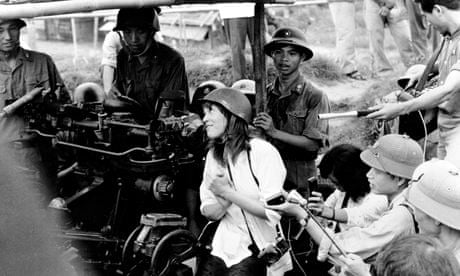
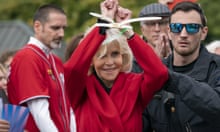

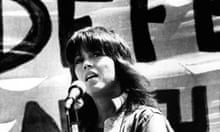


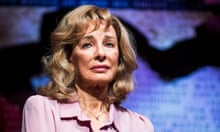

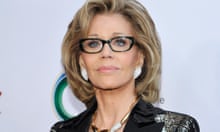
Comments (…)
Sign in or create your Guardian account to join the discussion